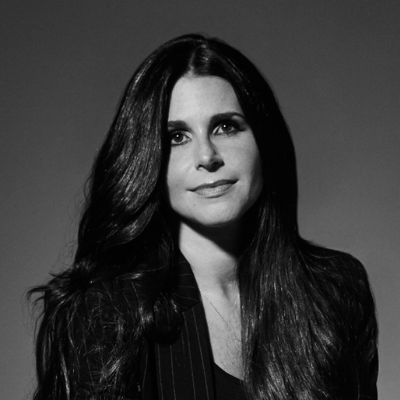Failure is often viewed as a negative experience, something to be avoided at all costs. But in reality, failure is one of the most powerful learning tools we have. For women aspiring to grow in their careers, businesses, or personal lives, learning to embrace failure and turn setbacks into steppingstones for success is crucial. In fact, many of the most successful women today have faced significant obstacles but used their failures as opportunities for growth. In this article, we’ll explore how to shift your perspective on failure, share inspiring stories of women who have turned their failures into success, and provide actionable steps for transforming setbacks into opportunities for growth.
Redefining Failure: A Catalyst for Growth
The first step in embracing failure is to redefine what it means. Rather than seeing failure as a personal flaw or the end of the road, it’s essential to view it as a necessary part of the journey toward success. Failure provides valuable lessons, teaches resilience, and often leads to new opportunities that wouldn’t have been discovered otherwise.
Thomas Edison famously said, “I have not failed. I’ve just found 10,000 ways that won’t work.” This mindset is key for anyone striving for success. Failure is not a verdict on your ability or worth; it’s feedback, a steppingstone that brings you closer to your goals.
For women entrepreneurs and professionals, this mindset shift is especially important. In a world where women often face unique challenges in business and leadership, the ability to embrace failure and grow from it can set you apart.
Success Stories: Women Who Turned Failures Into Steppingstones
Many successful women have faced failure on their journey but have used it to propel themselves to even greater heights. These stories serve as powerful examples of how setbacks can be transformed into opportunities for growth.
1. Oprah Winfrey: Fired, Then Flourished
Today, Oprah Winfrey is a media mogul, philanthropist, and one of the most influential women in the world. However, her journey to success was not without significant setbacks. Early in her career, Oprah was fired from her job as a television reporter because she was deemed “unfit for TV.” Instead of letting this failure define her, Oprah used it as motivation to find her true calling.
She later went on to host her own talk show, “The Oprah Winfrey Show,” which became one of the most successful daytime TV programs in history. Her ability to turn rejection into redirection is a testament to the power of resilience and embracing failure.

2. Sara Blakely: Rejection and the Birth of Spanx
Before Sara Blakely became the billionaire founder of Spanx, she faced years of rejection. Blakely initially wanted to become a lawyer but failed the LSAT twice. After that, she took a job selling fax machines door-to-door, where she experienced rejection daily.
It was through these challenges that she developed the thick skin needed to launch her own company. Blakely’s journey to creating Spanx, a revolutionary undergarment brand, wasn’t easy. She was turned down by numerous manufacturers and investors, but she persisted. Her story shows that rejection and failure can fuel innovation and perseverance.
3. J.K. Rowling: From Welfare to Worldwide Success
Before J.K. Rowling became one of the world’s most famous authors with her “Harry Potter” series, she was a single mother living on welfare. Rowling faced numerous rejections from publishers before finally getting a deal for her first book.
Her personal setbacks, including financial struggles and the death of her mother, deeply influenced her writing. Despite these challenges, she continued to pursue her passion for storytelling. Rowling’s story demonstrates that even in the face of seemingly insurmountable difficulties, persistence and belief in your vision can lead to phenomenal success.
4. Arianna Huffington: Failure as a Catalyst for Innovation
Arianna Huffington, the founder of The Huffington Post, is another powerful example of how failure can lead to success. Before her rise to prominence in the media world, she faced a major setback when her second book was rejected by 36 publishers. Most people would have been discouraged, but Huffington persisted.
Later, when she launched The Huffington Post, it was initially met with harsh criticism. Some called it “amateurish,” but Huffington didn’t let the negative feedback stop her. She used it to improve her platform, which eventually became one of the most widely-read online news sources globally.

Actionable Steps: Turning Setbacks into Opportunities for Growth
Learning to embrace failure is a process that requires a mindset shift, resilience, and a commitment to growth. Here are actionable steps you can take to view setbacks as opportunities:
1. Shift Your Mindset: See Failure as Feedback
The first step in turning failure into growth is changing the way you perceive it. Instead of viewing a setback as a reflection of your ability, see it as feedback. What can you learn from this experience? What went wrong, and how can you improve next time? When you see failure as a valuable learning experience, you begin to embrace it as part of your journey.
- Tip: After every setback, reflect on what you’ve learned. Write down the lessons and how you can apply them in the future. This practice will help you turn failure into a growth opportunity.
2. Build Resilience: Don’t Fear Rejection
Rejection is a part of every successful person’s journey. Whether it’s a job rejection, a failed business venture, or a missed opportunity, resilience is key to bouncing back. The most successful women in business and leadership are those who have developed the ability to persist in the face of failure.
- Tip: Practice resilience by stepping outside your comfort zone regularly. The more you expose yourself to potential failure, the more comfortable you become with it.
3. Surround Yourself with a Support System
Failure can be isolating, but having a strong support system can make all the difference. Surround yourself with mentors, friends, and colleagues who understand your journey and can offer encouragement and guidance. Sharing your failures with others helps normalize the experience and can lead to valuable insights.
- Tip: Join a community of like-minded women in business, such as a women’s entrepreneur group, where you can share experiences, support one another, and learn from collective failures.
4. Adopt a Growth Mindset: Be Open to Continuous Learning
A growth mindset is essential when it comes to embracing failure. This mindset, coined by psychologist Carol Dweck, is the belief that abilities and intelligence can be developed through hard work and learning. Instead of seeing failure as the end, see it as a chance to learn and improve.
- Tip: Embrace lifelong learning. Take online courses, attend workshops, and continuously seek out opportunities to improve your skills. This will prepare you to bounce back from setbacks stronger than before.
5. Take Calculated Risks: Don’t Let Fear of Failure Hold You Back
One of the biggest barriers to success is the fear of failure. To overcome this, it’s important to take calculated risks and step outside your comfort zone. Remember, every great success story involves risks and the possibility of failure. By taking smart, calculated risks, you increase your chances of discovering new opportunities for growth.
- Tip: Break big risks into smaller, manageable steps. This will make the risk feel less daunting and will give you the confidence to proceed, even if you fail at first.
Failure is an inevitable part of the journey to success, especially for women aspiring to make their mark in business, entrepreneurship, or leadership. By shifting your mindset, building resilience, and seeing setbacks as opportunities for growth, you can turn failure into one of your greatest assets.
The stories of successful women like Oprah Winfrey, Sara Blakely, J.K. Rowling, and Arianna Huffington demonstrate that failure is not the end—it’s often the beginning of something even greater. Embracing failure allows you to learn, innovate, and ultimately achieve success on your own terms. So, the next time you face a setback, remember that it’s not a roadblock—it’s a steppingstone on your path to greatness.










